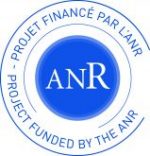THIS OFFER IS NOW CLOSED
Mathematical analysis, control design and coupling for models of biological oscillators
Context: Mammalian cells have evolved highly sophisticated intracellular communication pathways to enable their development and growth, under multiple environmental stresses and stimulus. Two major cyclic processes are at the basis of cell development: the cell cycle and the circadian clock, both of which have been separately studied from many diverse points of view. In project ICycle [1], our goal is to understand the communication pathways between these two primary cellular modules, using both mathematical and simulation tools, control theory and synthetic biology techniques.
PhD thesis topic: From a mechanistic point of view, the interaction between cell cycle and circadian clock can be represented as a control theoretic problem: a “plant” or the system to be controlled, an “output” or a set of measurements of the system, an “input” which is an entry point into the system, allowing for regulation, and a “controller” function. However, many points are still unclear from experimental evidence, such as the outputs and entry points of regulation for each oscillator, the relationship between the frequencies of each cyclic module, possible controllers, etc.
The main topic of this thesis is the design of control theoretical strategies for regulating and coupling two biological oscillators, control the strength of their interconnection, and the mutual adjustment of their frequencies and phases (see the related experimental data in [2]). To design biologically feasible control laws, two major difficulties are the low time frequency of data sampling and the range of values and functional forms allowed for the inputs. For these reasons, we need to search for solutions which can cope with uncertain knowledge and qualitative data.
In this context, some families of discrete or piecewise linear systems [3], constitute suitable modeling frameworks for the development qualitative control strategies such as in [4], where the mathematical model is written as a system of piecewise linear differential equations and the control inputs are assumed to be the synthesis rates. The inputs are constrained to take only a finite number of values, corresponding to possible biological regulations such as gene over- expression or silencing. A first step is to explore control strategies in a discrete state space, where each state represents a region of the continuous state space, and find a sequence of discrete states that leads to a desired target state or periodic orbit. A second step is to identify a control law to characterizes the corresponding dynamics.
The methods and techniques developed in this thesis will be applied to models for the mammalian clock and cell cycle which have been developed by ICycle partners [1], and are based on the experimental results of Delaunay Lab on circadian rhythms and phase-locking between the two oscillators [2]. One of the big challenges of this project is to implement the feasible control strategies to construct a synthetic biology circuit which reproduces the main features of the two oscillators, in a collaboration with F. Delaunay.
Background: An ideal candidate for this position has a degree in applied mathematics (or similar) with a background in the analysis of dynamical systems, preferably familiar with control theory (and/or hybrid systems theory). A strong motivation to work on applications in biology and genomics, in a multidisciplinary environment is very welcome.
Practical information: The PhD thesis will be supervised by Madalena Chaves at Inria Sophia Antipolis (http://www-sop.inria.fr/members/Madalena.Chaves/), in close collaboration with F. Delaunay at the Circadian System Biology Lab. The student will be registered at University of Cote d’Azur (Nice, France). The thesis is funded by ANR for 36 months.
For more information please send an email to madalena.chaves@inria.fr, with CV and names of two references.
[1] ICycle is an ANR-funded project (2017-2020) between Biocore, Inria; Delaunay Lab at Institut de Biologie de Valrose (CNRS/Universite Cote d’Azur); and Maiage, Inra. https://project.inria.fr/icycle/
[2] Feillet et al (2014), PNAS 111(27):9828 – 9833.
[3] M. Chaves and M. Preto (2013), Chaos (Focus issue), 23(2):025113.
[4] M Chaves and JL Gouzé (2011), Automatica 47:1105 – 1112.

